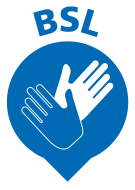Helping patients attend their important medical appointments
We provide a safe and reliable non-emergency transport service for patients who need medical or clinical support to get to and from their appointments.
If you have a medical condition that prevents you from travelling to a treatment centre by any other means, or you require the skills of an ambulance care assistant during the journey, our Patient Transport Service (PTS) can help.
The PTS transports patients with a wide range of needs from their homes to out-patient appointments, clinics and physiotherapy appointments, as well as carrying out non-urgent inter-hospital transfers.
The service provides reassurance for patients and their families who may otherwise feel anxious about making the necessary arrangements to attend appointments on time, and it’s an important operational service for NEAS.
Our PTS vehicles are designed for the comfort and safety of patients and the latest vehicles have more space for wheelchair users and tail lifts for convenience.
We want your journey with us to run as smoothly as possible. From us, you can expect:
- A service within a timely manner, in line with the quality standards. Unfortunately, we’re unable to give exact collection times, but it will generally be an hour before your appointment, depending on how close you are to the treatment centre.
- Our staff to carry identification and introduce them to you politely and professionally on arrival.
- To be treated with compassion, dignity and respect at all times.
- To be escorted and booked into the specific clinic you’re attending.
- Collection from the clinic back to your home, where we will escort you to your door.
To help us provide the best service possible, from you we ask that:
- You provide us with the correct information for your specific requirements, to ensure the correct mode of transport is provided for you.
- You’re ready when we arrive.
- You treat our staff with respect.
- You let us know as soon as possible if you need to cancel or change your appointment. You can call our dedicated Freephone cancellation line on 0300 1110247.
With the advent of several wheelchairs coming onto the market please see a few helpful hints on how to correctly identify a wheelchair that meets the existing regulations for a patient transportable wheelchair.
The chairs must meet ISO 7176-19:20 which is the industry standard.
How to check if a chair is to standard
The quickest way to check if a wheelchair meets the crash testing standard is by checking the wheelchair manual. Often but not exclusively there is a section towards the rear of the manual on transporting the wheelchair on a vehicle.
Wheelchairs with a stability bar across the rear handles must always be booked as a “webbing strap chair”. As the bar forms part of the wheelchair integral strength it must not be removed.
If a chair displays the karabiner clamp sign below, this does not indicate that the chair is crash tested for a patient transportation seat, this only denotes the wheelchairs suitability to be attached to a vehicle either by a RIP seat or webbing straps.

Electric wheelchairs
Electric wheelchairs must always be secured via the 6 point webbing system.
The tie down points can differ hugely in their position, some are coloured differently to make them stand out and will be located at different points on the chair.
It is imperative that the user manual is consulted before attempting to book an electric wheelchair to check that the chair is crash tested for use as a transportation seat and conforms to ISO 7176-19:2008.
Alternatively if you look on the manufacturers’ website for your make and model of chair you should be able to find the information there.


When you make a booking, you will be asked a series of questions to help us assess your needs. This is a standard assessment in line with NHS policy and is something that was introduced by local Clinical Commissioning Groups (CCGs).
It’s important you answer these as accurately as possible to ensure your needs are assessed correctly.
If you’ve been told you’re not eligible and you’re concerned about the decision, please contact The Transport Information Service line operated by the North East Commissioning Support Unit on 01642 263 123.
If you have a complaint about another part of the service, please contact your local Patient Advice Liaison Service (PALS).
If you’re eligible for patient transport, your booking will be made either by you, your GP, hospital staff or a dedicated call centre.
The number you need to call, depends on where you live.
Patients in Northumberland, Newcastle, Sunderland/Washington, Gateshead, North Tyneside and South Tyneside:
Contact our PTS contact centre on 0191 215 1515. This line is open from Monday to Friday, 8am-6pm.
Patients in Teesside and Darlington:
Phone the Transport Information Service on 01642 263 122.
Patients on Durham Dales and East Durham:
Phone the Travel Response Centre on 03000 269 9999.
Patients in North Durham:
Contact your GP or the Travel Response Centre. This is dependent on the GP surgery.
